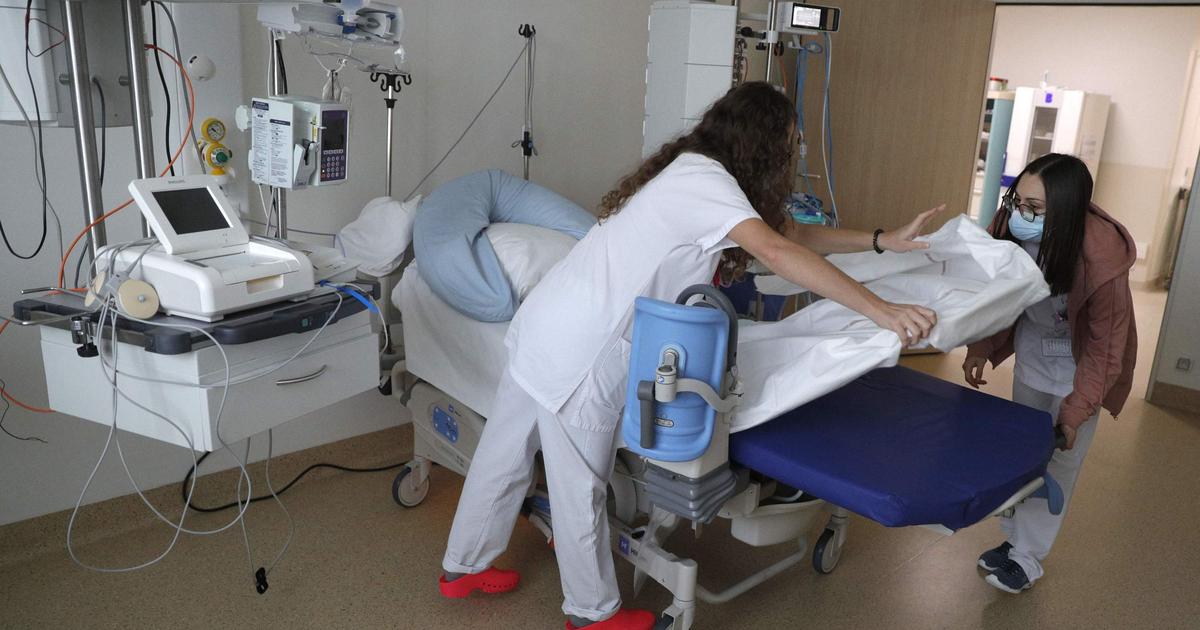The decision is difficult to make.
And despite the calls, in recent days, for a fast and strict reconfinement on the part of the doctors, the Elysee could well give itself a week more before announcing - or not - a new confinement.
We must avoid "haste" and wait "calmly" for the health results of the general curfew, said the Minister of the Economy, Bruno Le Maire this Tuesday morning.
What is played especially at the highest summit of the State, it is the contours of this third act: should we close non-essential businesses?
Schools and nurseries?
Impose teleworking and limit travel?
This Wednesday morning, however, the Defense Council will meet to make a strategic point.
And possibly guide the choices for the next few days.
“It is obvious that if this time the debate is so long on the government side, it is because of the economic impact that a third confinement could have, analyzes Anne-Sophie Alsif, chief economist at the Information Office and Economic Forecasting (BIPE) and member of the BSI Economics think tank.
One year before the presidential election and while vaccination gives us hope for an end to the crisis, the government must find a subtle balance to emerge from the pandemic without breaking the economy.
"
Bosses' morale is at half mast
Around the Defense Council table, the indicators listed by Bruno Le Maire will therefore be listened to with great attention.
The Treasury department prepared a note for him with refined forecasts, to which we had access, which estimate the loss of activity that could result from such or such confinement.
In the spring, the shutdown in France (closure of schools and non-essential businesses, shutdown of the industrial and construction sector, etc.) had caused activity to fall by 32% compared to last year.
With the lighter containment in November, the drop had been "only" 12%.
According to the three scenarios selected this time (light, medium, strict), activity would drop by -10%, -13% or even -18% in the event of the closure of schools, non-essential stores, company restaurants.
"It should fall as little as possible," said a senior official of the Ministry of the Economy.
Today, with the curfew and the closure of coffee shops, we are already at -7% according to the Banque de France.
Each point gained should be studied closely so as not to slow down growth in 2021. "
Newsletter It pays me
The newsletter that improves your purchasing power
Subscribe to the newsletterAll newsletters
In the entourage of the Minister, however, they want to demine: "These figures are not there to say that we should not redefine.
We should not think that Bercy is trying to prevent a new confinement.
The ministry just brings economic arguments.
But they weigh, obviously.
READ ALSO>
Reconfinement: Macron and the specter of civil disobedience
Because the morale of the bosses is at half mast: 49% of them are worried about "not being able to withstand a third confinement", indicates a recent survey carried out by the Confederation of small and medium-sized enterprises (CPME).
On the side of public funds, the aid bill weighs more and more heavily.
In the event of strict re-containment, Bercy estimates that the cost could rise to 15 billion euros per month (including solidarity fund, partial unemployment and exemptions from charges).
A simple curfew like today would cost between 5 and 6 billion euros.
"We no longer have the means, cowardly, worried, Agnès Verdier-Molinié, director of the iFRAP foundation, a liberal think-tank which evaluates public policies, and whose latest book (" La France can she hold still long? ”, Editions Albin Michel) has just been published.
We get the impression that the billions borrowed are magic.
But we must find a way to protect the health of the French without stopping economic activity.
"
The "whatever the cost" is not questioned
His forecasts are even more pessimistic than those of Bercy.
In the event of very strict re-containment - as in the spring - the loss of national wealth could climb, according to her, to 16 billion euros… per week!
“In 2020, on average, we borrowed 700,000 euros per minute, she says.
This cannot last any longer in 2021. "
Does this sound the death knell "whatever the cost"?
Not at all, if one is to believe Elisabeth Borne.
Asked this Tuesday morning on RTL, the Minister of Labor insisted that it "will last as long as necessary".
"As long as the health crisis is present everywhere in the world, this massive aid policy is sustainable, we can still borrow on the markets," says Anne-Sophie Alsif.
But if, in 2020, we were able to keep companies on a drip, the time for rebalancing will be set in 2021 to avoid widening generational inequalities or between sectors of activity.
A few months before the presidential election, it is important not to add a social crisis to the economic crisis.
"












/cloudfront-eu-central-1.images.arcpublishing.com/prisa/DIAGMBIFCBFTJADD5SB7GXXY2A.jpg)

